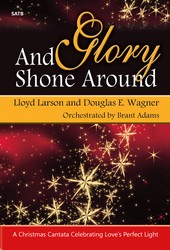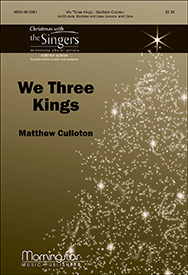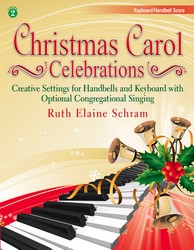- |
User Links
We Three Kings of Orient Are

We three kings of Orient are
Author: John H. Hopkins (1857)Tune: KINGS OF ORIENT
Scripture Songs
Published in 319 hymnals
Printable scores: PDFPlayable presentation: Lyrics only, lyrics + musicAudio files: MIDI, Recording
Representative Text
1 We three kings of Orient are;
bearing gifts we traverse afar,
field and fountain, moor and mountain,
following yonder star.
Refrain:
O star of wonder, star of light,
star with royal beauty bright,
westward leading, still proceeding,
guide us to thy perfect light.
2 Born a King on Bethlehem's plain,
gold I bring to crown him again,
King forever, ceasing never,
over us all to reign. [Refrain]
3 Frankincense to offer have I;
incense owns a Deity nigh;
prayer and praising, voices raising,
worshiping God on high. [Refrain]
4 Myrrh is mine; its bitter perfume
breathes a life of gathering gloom;
sorrowing, sighing, bleeding, dying,
sealed in the stone-cold tomb. [Refrain]
5 Glorious now behold him arise;
King and God and sacrifice:
Alleluia, Alleluia,
sounds through the earth and skies. [Refrain]
United Methodist Hymnal, 1989
Author: John H. Hopkins
 John Henry Hopkins, Jr MA USA 1820-1891. Born in Pittsburgh, PA, having 12 siblings, the son of pioneer parents (his father from Dublin, his mother from Hamburg) he became an ecclesiologist. His father had been an ironmaster, school teacher, lawyer, priest and second Episcopal Bishop of Vermont, (becoming presiding bishop in 1865). When his father founded the Vermont Episcopal Institute, he needed an assistant to help run it, so he picked his son to become a tutor and disciplinarian. The younger Hopkins played the flute and bugle in the school orchestra and also taught Sunday school. John Henry reflected the artistic talents of both parents in music, poetry, and art. After graduating from the University of Vermont in 1839, he returned… Go to person page >
John Henry Hopkins, Jr MA USA 1820-1891. Born in Pittsburgh, PA, having 12 siblings, the son of pioneer parents (his father from Dublin, his mother from Hamburg) he became an ecclesiologist. His father had been an ironmaster, school teacher, lawyer, priest and second Episcopal Bishop of Vermont, (becoming presiding bishop in 1865). When his father founded the Vermont Episcopal Institute, he needed an assistant to help run it, so he picked his son to become a tutor and disciplinarian. The younger Hopkins played the flute and bugle in the school orchestra and also taught Sunday school. John Henry reflected the artistic talents of both parents in music, poetry, and art. After graduating from the University of Vermont in 1839, he returned… Go to person page >Text Information
Related Texts
| First Line: | We three kings of Orient are |
| Title: | We Three Kings of Orient Are |
| Author: | John H. Hopkins (1857) |
| Meter: | 8.8.4.4.6 with refrain |
| Language: | English |
| Refrain First Line: | O star of wonder, star of night |
| Notes: | Spanish translation: "Del Oriente somos los tres" by Effie Chastain de Naylor |
| Copyright: | Public Domain |
| Liturgical Use: | Scripture Songs |
- Year A, Epiphany season, Epiphany of the Lord
This is recommended for Year A, Epiphany season, Epiphany of the Lord by 2 hymnal lectionary indexes including Glory to God: the Presbyterian Hymnal #151. - Year A, Epiphany season, Epiphany of the Lord
- Year B, Epiphany season, Epiphany of the Lord
- Year C, Christmas Season, Second Sunday after Christmas Day
English
- A Companion to the Canadian Sunday School Harp: being a selection of hymns set to music, for Sunday schools and the social circle #108
- A Hymnal and Service Book for Sunday Schools, Day Schools, Guilds, Brotherhoods, etc. #560
- A Junior's Praise #89
- A Manual of Devotion and Hymns for the House of Refuge, City of New York #162
- A New Service and Tune Book for Sunday Schools. New ed. #d148
- A Selection of Hymns: printed only for the use of the sabbath school of the Tenth Presbyterian Church, of Philadelphia #52
- A Treasury of Hymns: The best-loved hymns, carols, anthems, children's hymns, and gospel songs #69
- African American Heritage Hymnal #218
- All-American Church Hymnal #284
- Alleluia: a hymnal for use in schools, in the home, in young people's societies in devotional meetings #37 10 shown out of 233
Spanish
For Leaders
Text:
John Henry Hopkins wrote this Epiphany carol in 1857 and first published it in his own Carols, Hymns, and Songs in 1863. The first line of the song contains two historical inaccuracies. First, the visitors from the East were magi, not kings. Second, though Matthew 2:11 says there were three gifts, the Bible does not say that there were also three magi, one for each gift; that is a matter of tradition. It is a longstanding tradition, however, and the rest of the song focuses on the three gifts without mentioning their bearers.
There are five stanzas and a refrain. The first stanza describes the journey of the magi, following the star. The next three stanzas elaborate on the significance of each gift, and the final stanza summarizes the song. The only significant textual variation is the last line of the fifth stanza, which is given several renditions with the same basic meaning: the whole creation echoes the joy that Christ has come.
Tune:
Hopkins wrote the tune KINGS OF ORIENT for his text, with which it was first published. The tune can be sung in harmony on the first and last stanzas and every refrain, but in unison on the middle stanzas. In choosing a tempo and a mood, imagine the easy gait of a camel and the color of a Middle Eastern caravan.
When/Why/How:
This hymn is most appropriate for Epiphany, and may be one of the first songs to come to mind about the story of the magi in Matthew 2. The first published edition of this song was arranged for a trio of men, representing the three kings. They were given the names Gaspard (or Caspar, who sang the melody), Melchior, and Balthazar. The following instructions were given in a footnote: “Each of verses 2, 3, and 4, is sung as a solo to the music of Gaspard's part to the 1st and 5th verses, the accompaniment and chorus being the same throughout. Only verses 1 and 5 are sung as a trio.” A brief instrumental interlude followed the refrain. “Festive Hymn Settings, Set 2” contains an arrangement for congregational accompaniment on organ and tambourine that loosely follows Hopkins' suggestions.
Often, this hymn is sung as a song from a Western culture. Though it was written by an American of European descent, the tune also has the potential to be performed in a manner reminiscent of the Middle Eastern culture in which the Christmas and Epiphany stories actually took place. Two arrangements that can give ideas for this are the organ setting in “Christmas Joy,” and the setting for handbells, percussion, and keyboard or synthesizer, “We Three Kings.”
Tiffany Shomsky, Hymnary.org
Timeline
Arrangements
Media
The United Methodist Hymnal #254
- MIDI file from Baptist Hymnal 1991 #113
- MIDI file from Baptist Hymnal 1991 #113
- Audio recording from Baptist Hymnal 2008 #215
- MIDI file from The Cyber Hymnal #7247
- Audio recording from Glory to God: the Presbyterian Hymnal #151
- MIDI file from Hymns and Carols #10
- Audio recording from The Worshiping Church #185
- MIDI file from The United Methodist Hymnal #254
- Audio recording from The United Methodist Hymnal #254
- MIDI file from Worship and Rejoice #233


 My Starred Hymns
My Starred Hymns








